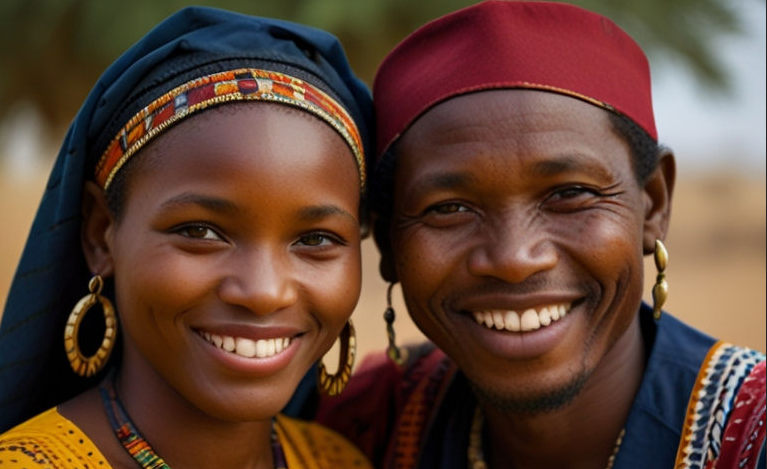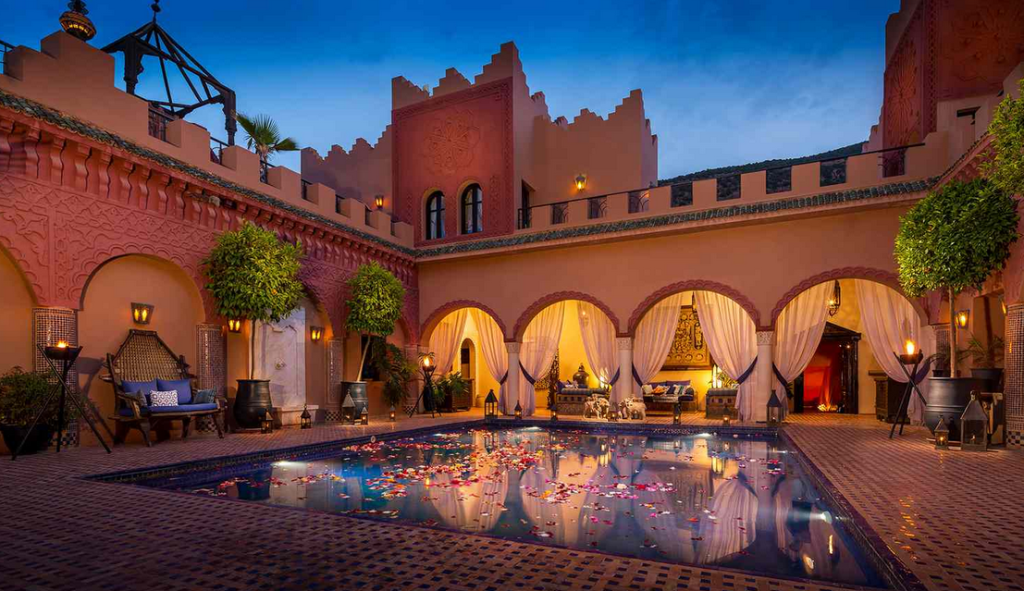Zulu, locally referred to as isiZulu, is a Bantu language spoken by the largest ethnic group in South Africa, the Zulu. IsiZulu is one of the 11 official languages of South Africa and is categorized under the Nguni languages. This means that the Zulu people can comprehend other Nguni languages, such as Ndebele, Xhosa, and Swati. Approximately 24% of South Africans are originally Zulu while over 50% of South Africans can speak and understand the Zulu language. Zulu has been influenced by many other languages such as English and Afrikaans. The language also borrows its click sound system from the Khoisan, making it an interesting cocktail of South African languages.
There are approximately 10 million Zulu speakers residing in the South African province of KwaZulu-Natal, making it the most spoken language in the country. Zulu is commonly spoken in specific sections of Orange Free State, Gauteng, and Mpumalanga provinces in South Africa. The language is also spoken in other African countries such as Lesotho, Swaziland, and Malawi. Following the elimination of apartheid and foreign sanctions in 1994 in South Africa, speaking and understanding Zulu has become a top priority for several communities, businesses, and political entities in various parts of South Africa and the world. As a result, Zulu remains one of the ethnic groups in South Africa that have managed to preserve and pass on their cultural beliefs and practices in today’s modern world.
History and Origin of Zulu Language
Zulu developed from a small clan among the Nguni languages and went on to become one of the greatest Kingdoms in South Africa. The community was named after the clan’s founder, Zulu kaMalandela. The word Zulu translates to ‘sky’ or ‘heaven’ which symbolizes the community’s connection to greatness. The origin of the Zulu language can be traced to the 14th Century AD when South African Bantus migrated from the Great Lakes region to South Africa. Just like other Bantu migrant communities, the isiZulu adopted the language and click sounds from the Khoi and San, who were recognized as the first residents of South Africa.

Despite Zulu’s interaction with other languages, the community managed to retain its original identity and pass it on to other generations as it was used as a primary language of communication. Such indigenous languages were used as primary communication languages up until European missionaries arrived in South Africa in the 19th Century, during Shaka Zulu’s reign among the isiZulu. However, the missionaries noticed the great influence of this language and published the first Zulu Bible in 1883. This became the first-ever written Zulu literature piece.
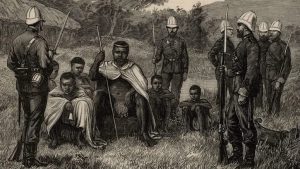
In 1901, John Dube founded the Ohlange Institute, the first-ever South African indigenous education institution. The institution fostered learning and use of indigenous languages such as Zulu. Dube led by example as he composed the first-ever Zulu novel, titled ‘Insila kaShaka’. His work facilitated the coming up of other indigenous language literature contributors such as Reginald Dhlomo, Oswald Mbuyisieni Mtshali, and Benedict Wallet Vilakazi, who primarily focused on documenting significant historical events among the Zulu people and their leaders. Zulu poetry increasingly became popular in 1935 with significant contributions made by poets JC Dlamini, OEH Nxumalo, and BWV Vilkazi.
When South Africa gained independence in 1994, Zulu was declared one of the official languages of the country. This official status promoted the preservation, use, and revitalization of isiZulu in the country.
How Zulu Shapes African Culture and Identity
1. Cultural Transmission
Since it is one of the 11 official languages of South Africa and it is spoken by over 10 million people, Zulu plays a crucial role in passing on oral traditions, music, dance, and folklore. This language is instrumental in preserving and passing down indigenous knowledge systems.
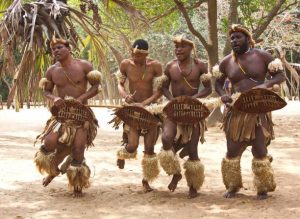
2. Cultural Identity and Unity
Zulu provides a sense of belonging and pride to all people who speak the language since it is one of the major languages spoken in South Africa. This includes not only the isiZulu but also other communities who can comprehend and speak the language. Zulu was a pillar of identity and unity during challenging times such as colonization, making it an important part of the South African community.
3. Linguistic Heritage
As part of the Nguni language groups, Zulu highly influences other South African languages, making it easier for people from these languages to comprehend and even speak in Zulu. This fosters the development of linguistic heritage and the preservation of linguistic structures among different African languages in the region.
4. Globalization
In South Africa and neighboring countries, Zulu remains influential in the modern world while maintaining its traditional aspects. These trends can be observed in music, film, and pop culture where Zulu artists and performers retain traditional components of the language while merging it with modern aspects of the entertainment industry. This characteristic of the Zulu language highlights its role in bridging the gap that exists between contemporary and traditional African cultures.
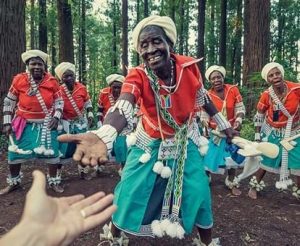
Zulu in Pop Culture and Media
1. Music
Zulu is one of the African languages that has heavily influenced the development and establishment of the African music scene. The language is prominently used in both traditional and modern music genres such as mbaqanga and isicathamiya. International collaborations between Zulu-speaking artists and international music sensations have also helped put the language on the map. Today, Zulu lyrics are largely incorporated into modern music genres, such as amapiano, increasing its popularity among different audiences globally.
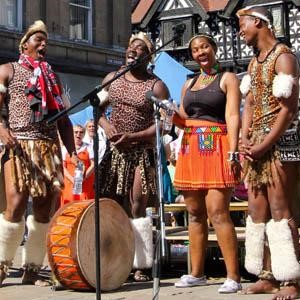
2. Television and Film
Since South Africa declared Zulu as one of its 11 official languages, it has been used in the composition and performance of various television shows and films in the South African entertainment scene. TV shows such as Isibaya and Uzalo are extremely popular, setting Zulu apart as an influential language in the country. International films such as Lion King incorporate Zulu to contribute to the cultural depth and significance of the movie. Zulu is undoubtedly contributing immensely to both the local and international entertainment scenes.

3. Fashion and Art
Zulu traditional attire is known for its remarkable beadwork. Contemporary fashion designs often incorporate such features and showcase them in fashion shows and clothing lines. In terms of art, Zulu cultural aspects are largely incorporated in various media and art projects. This way, Zulu cultural artifacts become a large influence and part of modern fashion and art.
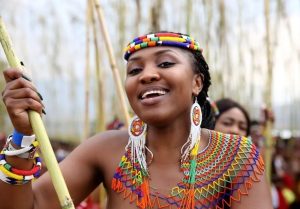
4. Social Media
Zulu-based social media content has become an important part of both local and international viral content. Zulu-speaking content creators actively use Instagram, TikTok, and YouTube to post content that highly resonates with both local and international audiences. Some of them also post memes and expressions that are inspired by Zulu oral and written literature such as proverbs and traditional folklore, making Zulu culture an important contributor to South Africa’s digital pop culture.
References
eHRAF: World Cultures. (n.d.). Zulu. https://ehrafworldcultures.yale.edu/cultures/fx20/summary
Siyabona Africa. (2024). Zulu. https://www.krugerpark.co.za/africa_zulu.html
SouthAfrica.com. (2024). Zulu – South Africa’s Renowned Indigenous Language. https://www.southafrica.com/culture/languages/zulu/
South African History Online. (2020). Zulu. https://www.sahistory.org.za/article/zulu
Worldwide Interpreting and Translation. (2023). The Zulu Language: A Rich Tapestry of South African Culture. https://worldwideinterpreters.com.au/2023/07/30/the-zulu-language/

